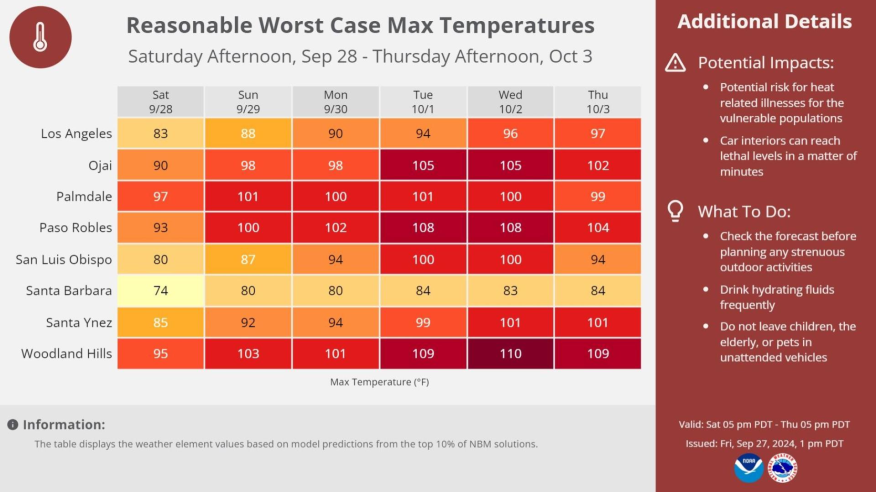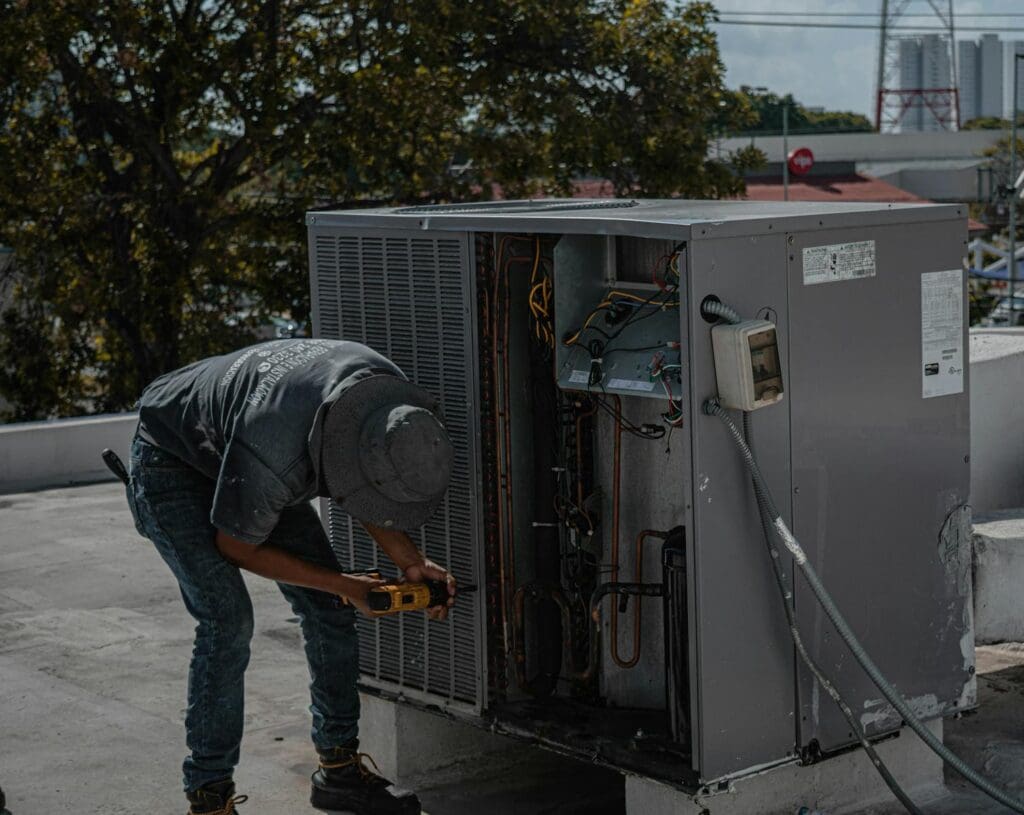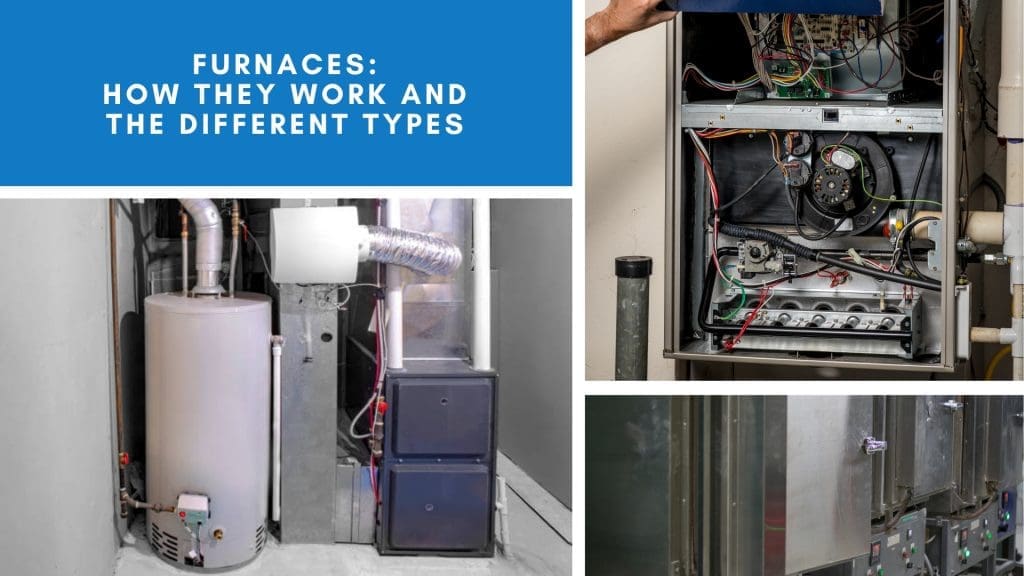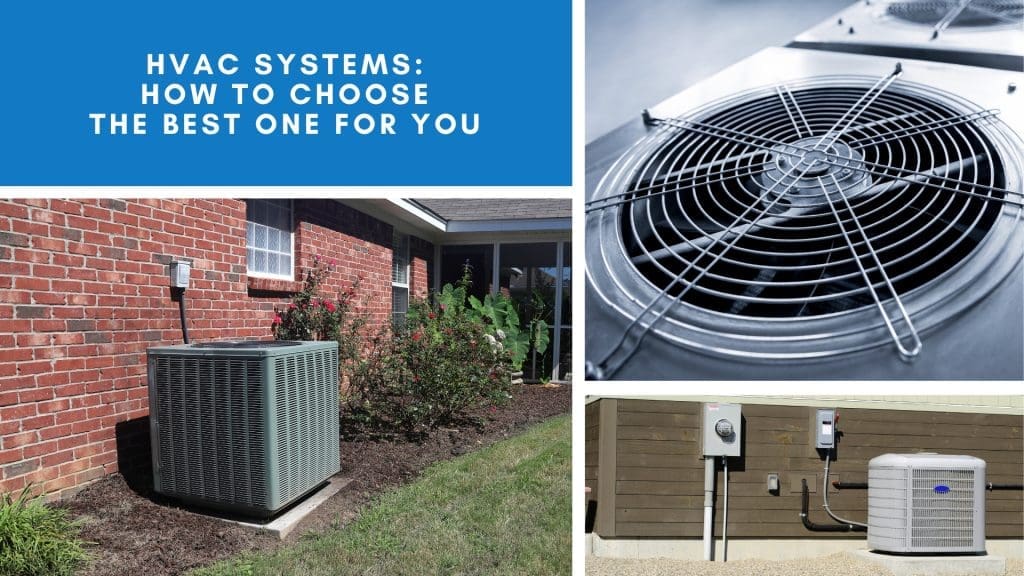As temperatures soar in California during late September and October, residents face increased fire risks and power shutoff warnings. An efficient HVAC system is crucial in mitigating these risks, conserving energy, and ensuring comfort. This comprehensive guide explores how efficient HVAC systems can save energy, reduce fire risks, and lower the chance of power outages, while also being cost-effective and compatible with backup generators or solar power.
Introduction to Efficient HVAC Systems
Efficient HVAC (Heating, Ventilation, and Air Conditioning) systems are designed to provide optimal indoor climate control while consuming less energy. These advanced systems use innovative technologies to regulate temperature, humidity, and air quality, ensuring a comfortable living environment. The efficiency of an HVAC system is measured by its ability to deliver the desired climate control using minimal energy.
Modern HVAC systems come with various features, such as programmable thermostats, variable-speed compressors, and advanced air filtration systems. These features not only enhance the system’s performance but also contribute to significant energy savings. Moreover, efficient HVAC systems are designed to reduce wear and tear, prolonging the lifespan of the equipment and reducing maintenance costs.
Investing in an efficient HVAC system is not just about comfort; it’s about making a smart, long-term investment. With rising energy costs and the increasing frequency of extreme weather conditions, having an efficient HVAC system can help homeowners save money while maintaining a safe and comfortable indoor environment.
Impact of Soaring California Temperatures
California’s late September to October period is notorious for its soaring temperatures. This seasonal heat puts immense pressure on the power grid, leading to increased power shutoff warnings and heightened fire risks. The demand for air conditioning spikes during these months, causing power outages and straining energy resources.

High temperatures not only affect the outdoor environment but also impact indoor living conditions. Without a reliable HVAC system, residents may face discomfort, health risks, and potential property damage. The increased use of inefficient HVAC systems during this period can exacerbate energy consumption, leading to higher utility bills and a greater likelihood of power outages.
Efficient HVAC systems can play a crucial role in mitigating these issues. By consuming less energy and operating more effectively, these systems can help maintain comfortable indoor temperatures without overburdening the power grid. This, in turn, reduces the risk of power shutoffs and contributes to a more stable energy supply during peak demand periods.
Understanding Fire Risks with Inefficient HVACs
Inefficient HVAC systems pose significant fire risks, especially during California’s hot and dry seasons. Old HVAC or poorly maintained HVAC units can overheat, leading to electrical malfunctions and potential fire hazards. Dust and debris accumulated in these systems can also ignite, increasing the risk of fire.
Regular maintenance and upgrading to efficient HVAC systems can mitigate these fire risks. Efficient HVAC systems are designed with safety features such as automatic shutoff mechanisms, improved ventilation, and advanced filtration systems. These features help prevent overheating and reduce the accumulation of flammable materials within the system.
Furthermore, efficient HVAC systems operate more smoothly, reducing the strain on electrical components and minimizing the risk of electrical fires. By investing in a modern, high-efficiency HVAC system, homeowners can significantly reduce the likelihood of fire incidents, ensuring a safer living environment.
How Efficient HVAC Systems Save Energy
Efficient HVAC systems are engineered to deliver superior performance while using less energy. These systems utilize advanced technologies like variable-speed motors, which adjust the airflow and cooling output based on real-time demand. This prevents the system from operating at full capacity unnecessarily, leading to significant energy savings.
Programmable thermostats and smart home integration further enhance the energy efficiency of HVAC systems. Homeowners can set specific temperature schedules, ensuring that the system operates only when needed. This reduces energy consumption during periods when the home is unoccupied, resulting in lower utility bills.
In addition to saving energy, efficient HVAC systems contribute to a reduced carbon footprint. By consuming less electricity, these systems help decrease greenhouse gas emissions associated with power generation. This not only benefits the homeowners financially but also supports broader environmental conservation efforts.
Mitigating Power Outages with Efficient HVAC Systems
Efficient HVAC systems can play a critical role in mitigating power outages. By using less energy to achieve the same level of comfort, these systems reduce the overall demand on the power grid. This is particularly important during peak usage periods, such as late September and October in California, when high temperatures drive up energy consumption.
In the event of a power outage, efficient HVAC systems are better suited to operate on backup sources like generators or solar power. Their lower energy requirements mean that a smaller, less expensive backup system can maintain essential climate control, ensuring comfort and safety even during extended outages.
Moreover, efficient HVAC systems can be integrated with smart home technology to optimize energy usage dynamically. This proactive approach to energy management helps prevent overloads on the power grid, contributing to fewer outages and a more reliable energy supply for everyone.
The Role of SEER2 Ratings in HVAC Efficiency
The SEER2 (Seasonal Energy Efficiency Ratio 2) rating is a critical metric for evaluating the efficiency of HVAC systems. It measures the cooling output of an air conditioning unit relative to its energy consumption over a typical cooling season. A higher SEER2 rating indicates a more efficient system, which can lead to substantial energy and cost savings.
When choosing an HVAC system, it is essential to consider the SEER2 rating. Systems with higher SEER2 ratings are designed to operate more efficiently, providing the same level of cooling with less energy. This translates into lower utility bills and a reduced environmental impact, making SEER2-rated systems a smart choice for eco-conscious homeowners.

Investing in a high-SEER2 HVAC system can also improve the overall value of a property. Energy-efficient homes are increasingly in demand, and having a high-performing HVAC system can make a property more attractive to potential buyers. This added value further underscores the long-term benefits of choosing an efficient HVAC system.
Operating Efficient HVACs on Backup Generators or Solar
Efficient HVAC systems are well-suited for operation on backup generators or solar power. Their lower energy consumption means that they can run effectively on smaller, more affordable backup systems. This is particularly beneficial in areas prone to power outages, such as California during its hot and dry seasons.
Solar power is an excellent complement to efficient HVAC systems. By harnessing renewable energy, homeowners can reduce their reliance on the grid and lower their electricity bills. Efficient HVAC systems maximize the benefits of solar energy by using less power, making it feasible to maintain climate control even during prolonged power outages.
Backup generators also benefit from efficient HVAC systems. Since these systems require less power to operate, the demand on the generator is reduced, extending its operational life and reducing fuel consumption. This ensures that homeowners can rely on their backup power sources for longer periods, maintaining comfort and safety during outages.
Cost-Benefits of Efficient HVAC Systems
The cost-benefits of efficient HVAC systems are substantial. While the initial investment may be higher than that of conventional systems, the long-term savings in energy costs more than compensate for the upfront expense. Efficient HVAC systems can reduce utility bills by up to 30%, providing significant financial relief to homeowners.
In addition to energy savings, efficient HVAC systems require less maintenance and have a longer lifespan. The advanced technologies used in these systems reduce wear and tear, minimizing the need for repairs and replacements. This leads to lower maintenance costs over time, further enhancing the financial benefits of investing in an efficient HVAC system.
Rebates and incentives are often available for homeowners who install energy-efficient HVAC systems. These programs can help offset the initial costs, making it more affordable to upgrade to a high-efficiency system. By taking advantage of these incentives, homeowners can enjoy the dual benefits of reduced energy costs and improved home value.
FAQs About Efficient HVAC Systems and Fire Risks
Q: How can an efficient HVAC system reduce fire risks?
A: Efficient HVAC systems are designed with safety features such as automatic shutoff mechanisms, improved ventilation, and advanced filtration systems. These features help prevent overheating and reduce the accumulation of flammable materials, significantly lowering the risk of fire.
Q: What is the SEER2 rating, and why is it important?
A: The SEER2 rating measures the cooling output of an air conditioning unit relative to its energy consumption over a typical cooling season. A higher SEER2 rating indicates a more efficient system, which leads to lower energy consumption and reduced utility bills.
Q: Can efficient HVAC systems operate on solar power or backup generators?
A: Yes, efficient HVAC systems are well-suited for operation on solar power or backup generators. Their lower energy consumption allows them to run effectively on smaller, more affordable backup systems, ensuring comfort and safety during power outages.
How LC HVAC in Hollywood Can Assist You
LC HVAC in Hollywood specializes in providing high-efficiency HVAC systems tailored to meet the unique needs of California residents. With a focus on energy savings and safety, LC HVAC offers a range of SEER2-rated systems designed to withstand the extreme temperatures and fire risks associated with the region.
The team at LC HVAC is committed to helping homeowners make informed decisions about their HVAC systems. They provide comprehensive assessments to determine the best system for each home, taking into account factors such as energy consumption, climate control needs, and budget. Their expert installation and maintenance services ensure that each system operates at peak efficiency and safety.
LC HVAC also offers guidance on integrating efficient HVAC systems with backup generators or solar power. Their expertise ensures that homeowners can enjoy uninterrupted comfort and peace of mind, even during power outages. With LC HVAC, you can be confident in your investment in an efficient, reliable, and safe HVAC system.
As California grapples with soaring temperatures and increased fire risks, investing in an efficient HVAC system is a smart and proactive choice. These systems not only enhance comfort and safety but also deliver substantial energy savings and reduce the likelihood of power outages. By understanding the benefits of efficient HVAC systems, you can make informed decisions that protect your home, lower your utility bills, and contribute to a more sustainable future. Trust in the expertise of providers like LC HVAC in


